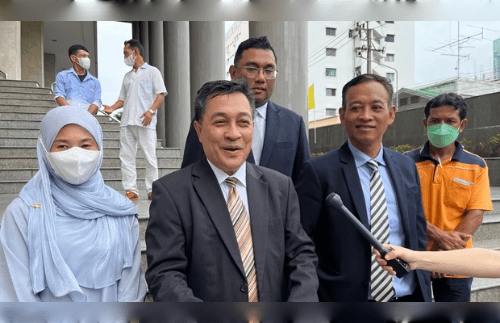Salem Solomon

Protest leaders and analysts predict more change as Sudan adjusts to a new reality, without the president who led the country for three decades.
In a surprise address Thursday that aired on national television, Defense Minister Awad Ibnouf announced that the military had staged a coup, ousting President Omar al-Bashir. The minister asked for a return to calm and said the military would close Sudanese borders until further notice and impose a curfew from 10 p.m. to 4 a.m.
But protesters were unsatisfied by the move, with some reportedly chanting, “The first one fell, the second one will, too.”
Reached by phone in London, Sarah Abdeljalil, a protest organizer and spokesperson for the Sudanese Professionals Association (SPA), told VOA that protestoers have no intention of following the curfew or accepting military rule.
“This is just the continuation of the same regime, actually; they’re just changing faces, recycling leaders. But it is the same regime trying to come [up] with a new, different shape, but we will not be fooled,” Abdeljalil said. “So, the uprising will continue.”
Watching the soldiers

The Central Committee of Sudanese Doctors reported that at least 13 people were killed Thursday in clashes between protesters and security forces. Videos of ongoing protests in the streets filled social media, with reports Thursday from Khartoum indicating that hundreds defied the curfew and remained outside army headquarters.
In recent days, images of soldiers alongside protesters singing, chanting and playing music have circulated on social media. Images of security forces abandoning their uniforms in protest have also surfaced.
Observers are now closely watching the rank-and-file soldiers to see if they will continue to side with protesters or begin cracking down on the gatherings, at the urging of the new regime.
“These people went very far, as far as insubordination, and called on their colleagues to join them. So, in effect, they committed an act of mutiny,” said Jean-Baptiste Gallopin, a Ph.D. candidate in sociology at Yale University and former Sudan researcher at Amnesty International. “And if the regime stays as it is, they are likely to get punished. So they have a strong interest in staying on the side of demonstrators and pushing for further change.”
Economic woes
Eric Reeves, a Sudan researcher and a senior fellow at Harvard University, told VOA widespread anger over Sudan’s declining economy has accompanied dissatisfaction with single-party rule.
Sudan has lost significant oil revenue in recent years, and its currency has deteriorated in value. Late last year, inflation reached 70%, and the government slashed subsidies for fuel and bread.
Reeves said the change in leadership at the top will not alter the harsh realities on the ground.
“This fools nobody,” Reeves told VOA. “[It] addresses none of the issues, and certainly does nothing to bring about the kind of changes that will rescue the Sudanese economy from its present collapse — and it is collapsing very rapidly.”
Future scenarios
Gallopin believes the Sudanese uprising could follow one of three paths. The government could maintain enough loyalty and military firepower to crush the demonstrations. Similar to Tunisia, protests could spur further concessions. Or the protests could lead to further fracturing and in-fighting within the regime.
Reeves said that, unlike countries like Libya or Somalia, Sudan has a long history of political parties and political institutions. He’s hopeful that this history will help the country avoid the type of bloodshed seen in other parts of the world that experienced sudden power vacuums.
But much will depend on what choices the military makes next.
“I think the feeling was that, by arresting al-Bashir, that they could take the steam out of the uprising — but that’s not the case,” Reeves said. “So we are looking at a period of great uncertainty. I’m very hopeful that the middle ranks of the army will begin to break away from the regime.”














